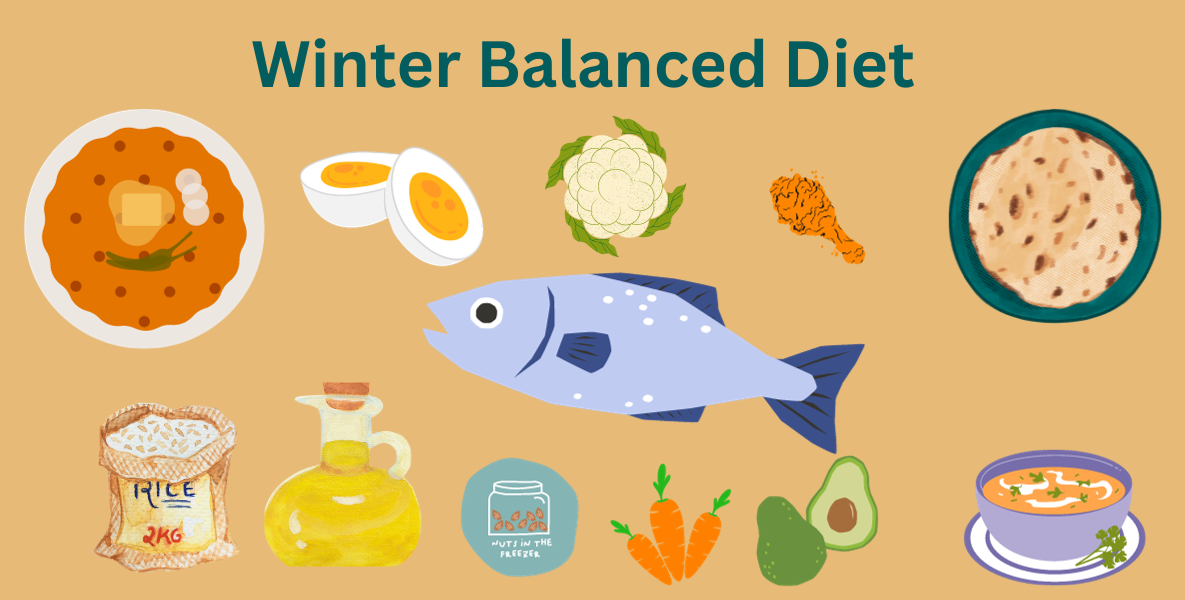Creating a balanced diet during the winter months is crucial to support overall health and well-being. Incorporating a variety of foods that provide essential nutrients can help boost immunity, maintain energy levels, and keep you warm during the colder season.

1. Whole Grains
- Why: Whole grains are a good source of complex carbohydrates, fiber, and various nutrients.
How to Include
- Opt for whole grain options like brown rice, quinoa, barley, and whole wheat bread.
- Prepare warm and hearty dishes like oatmeal, whole grain porridge, or soups with barley.
2. Seasonal Vegetables
- Why: Seasonal vegetables provide a range of vitamins, minerals, and antioxidants.
How to Include
- Incorporate winter vegetables like carrots, beets, sweet potatoes, cauliflower, and leafy greens into your meals.
- Make comforting vegetable stews, roasted vegetables, or add them to soups and curries.
3. Protein-Rich Foods
- Why: Protein is essential for muscle health, immune function, and overall body repair.
How to Include
- Include lean protein sources like fish, eggs, legumes, and tofu.
- Prepare warming dishes like lentil soup, chicken stew, or grilled fish.
4. Healthy Fats
- Why: Healthy fats provide energy, support nutrient absorption.
How to Include
- nclude sources of healthy fats such as avocados, nuts, seeds, and olive oil.
- Use nuts and seeds as toppings for salads, yogurt, or oatmeal.
5. Winter Fruits
- Why: Winter fruits offer essential vitamins, antioxidants, and natural sweetness.
How to Include
- Enjoy seasonal fruits like apples, pears, citrus fruits, and pomegranates.
- Make fruit salads, smoothies, or have them as a snack to satisfy sweet cravings.
Additional Tips
1. Stay Hydrated
- Even though it’s cold, staying hydrated is crucial. Opt for warm beverages like herbal teas, soups, and warm water with lemon.
2. Include Spices
- Incorporate warming spices like cinnamon, ginger, turmeric, and black pepper into your meals. These spices not only add flavor but also have potential health benefits.
3. Portion Control
- Be mindful of portion sizes to avoid overeating, especially during the holiday season. Balance is key.
4. Meal Planning
- Plan your meals to ensure a diverse and balanced intake of nutrients. This can help you make healthier food choices.
5. Prioritize Whole Foods
- Choose whole, minimally processed foods over highly processed options to maximize nutrient intake.
By including these five food components in your winter diet and following additional tips, you can create a well-rounded and nourishing eating plan that supports your health and energy levels throughout the colder months.

